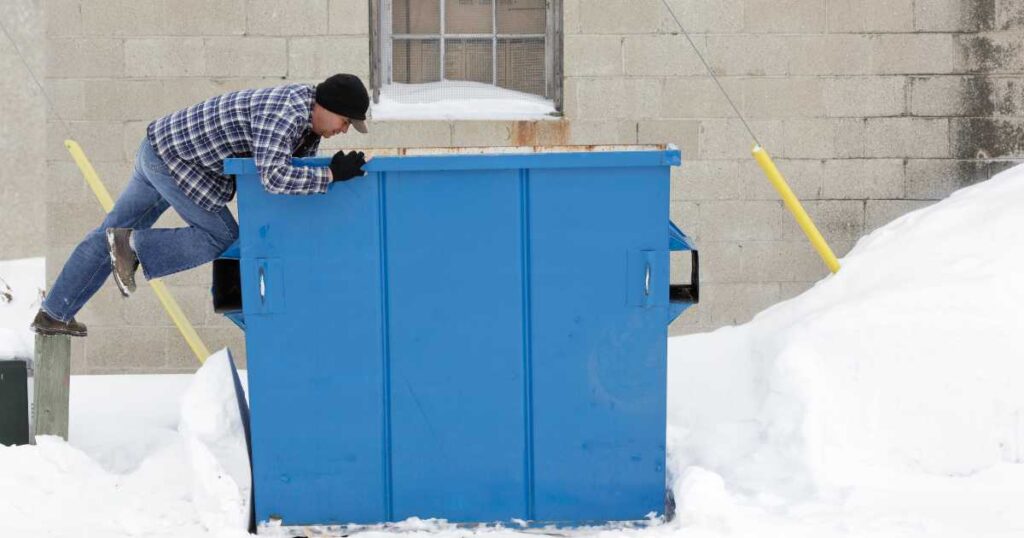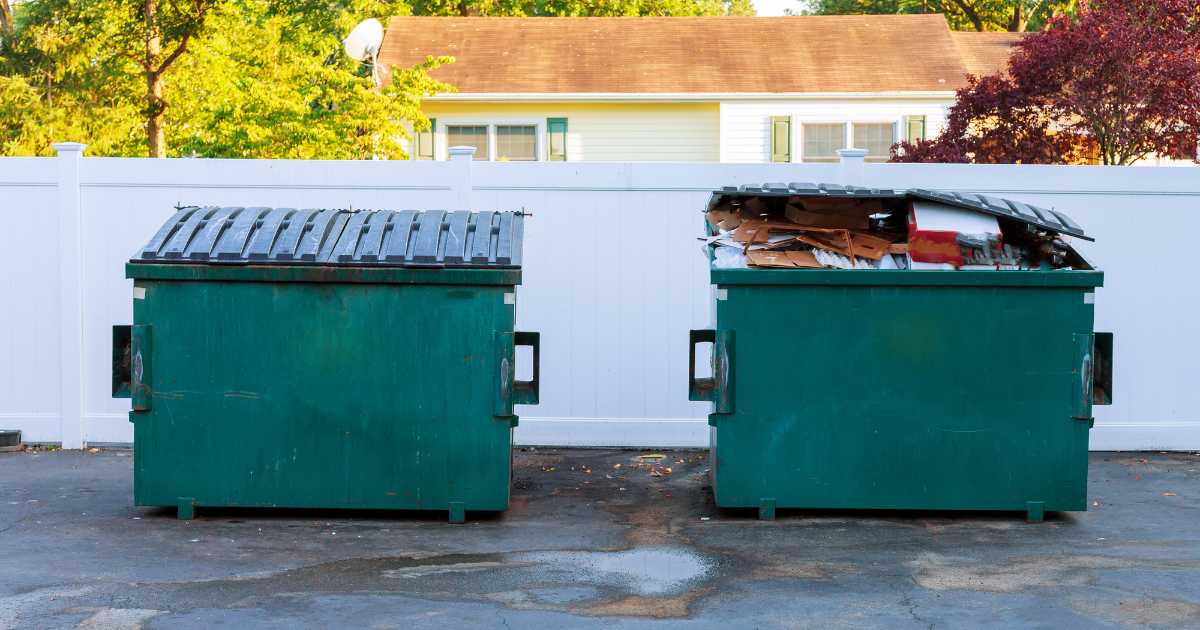Managing waste is a critical aspect of any project, whether it’s a home renovation, construction, or landscaping effort. Without the right plan, waste can quickly become an overwhelming challenge. This is where dumpster rentals come in handy.
They provide a practical, efficient, and eco-friendly solution for handling project debris, but finding the right dumpster rental isn’t always straightforward. This guide outlines everything you need to know to make the best choice for your specific needs.
Selecting the right dumpster rental can make all the difference in managing waste effectively for your project. Whether you’re tackling a home renovation, construction site cleanup, or landscaping project, understanding how to choose the right dumpster is crucial.
Here’s a comprehensive guide to ensure you make the best decision.
Assess Your Project Needs
The first step in selecting the perfect dumpster is to evaluate the scope and type of your project. Consider the following:
Type of Waste: Determine whether you’re disposing of household junk, construction debris, yard waste, or hazardous materials. Keep in mind that some materials, like chemicals or electronic waste, may require special disposal methods. Wondering if you can dispose of sod? Check out can I throw sod in a dumpster rental.
Volume of Waste: Estimate the amount of waste your project will generate. This will assist in choosing the right dumpster size. For instance, clearing out a single room may require a smaller container, while a whole-house renovation might demand something more substantial.
Duration of the Project: The length of your project will impact rental duration and costs. If your timeline is uncertain, consider flexible rental agreements offered by some companies.
Understand Dumpster Sizes
Dumpster rentals are available in various sizes, typically measured in cubic yards. Common options include:
10-Yard Dumpster: Ideal for small-scale projects like garage cleanouts, minor renovations, or small landscaping tasks. It holds approximately 50-70 trash bags.
20-Yard Dumpster: Suitable for larger cleanouts, roofing projects, or small construction tasks. This size accommodates around 110-130 trash bags.
30-Yard Dumpster: Best for medium-sized construction projects, significant home renovations, or large yard cleanups. It can handle roughly 170-190 trash bags.
40-Yard Dumpster: Appropriate for large-scale projects such as commercial construction, complete home demolitions, or major renovations. It holds about 230-250 trash bags.
Always choose a size that accommodates your waste with some extra capacity to avoid overage fees. Discuss sizing with your rental provider to ensure the chosen dumpster meets your project requirements.

Check Local Regulations and Restrictions
Before renting a dumpster, research local rules and regulations. Some municipalities have restrictions on:
Placement of dumpsters on streets or sidewalks. You may need to secure a permit if the dumpster is on public property.
Types of materials that can be disposed of, such as tires, paint, or appliances with Freon.
Weight limits for waste. Exceeding weight limits can result in additional fees or the inability to haul away the dumpster.
Permits may be required if placing the dumpster in public areas. Clarify these requirements with your rental provider, as some companies offer assistance in securing necessary permits.
Compare Rental Companies
Not all dumpster rental companies are created equal. When comparing providers, consider:
Reputation: Check online reviews and testimonials from previous customers. Look for companies with consistent positive feedback.
Pricing Structure: Ensure transparency in pricing, including base rates, delivery fees, and potential penalties for overages or prohibited items.
Availability: Confirm the company can deliver and pick up the dumpster according to your schedule. Timely delivery and pickup are crucial for project efficiency.
Customer Service: Opt for a company with responsive and helpful support. Clear communication is essential for addressing any issues or questions during your rental period.
Additional Services: Some companies offer extra services such as recycling options, multiple dumpster sizes, or extended rental periods.
Understand Rental Terms
Carefully review the rental agreement to avoid surprises. Pay attention to:
Rental Duration: Ensure the timeline aligns with your project needs. Many providers offer daily, weekly, or monthly rental options.
Weight Limits: Understand the maximum allowable weight and any fees for exceeding it. This is especially important for construction debris or dense materials like concrete.
Prohibited Items: Verify what materials cannot be disposed of in the dumpster. Common prohibited items include hazardous chemicals, electronics, and flammable substances.
Cancellation Policies: Understand the terms for canceling or modifying your rental in case of schedule changes.
Plan for Placement
Selecting the proper location for your dumpster is critical to ensuring accessibility and avoiding inconvenience. Consider:
Space Requirements: Ensure adequate space for the dumpster and delivery truck. Measure the area if needed to avoid issues on delivery day.
Ground Surface: Place the dumpster on a stable and level surface, such as a driveway, gravel area, or paved street. Avoid soft surfaces like grass that might cause the dumpster to sink or shift.
Accessibility: Ensure clear access for both loading waste and pickup. Avoid blocking gates, walkways, or driveways.
Protection Measures: Use plywood or similar materials under the dumpster to prevent damage to driveways or paved surfaces
Prioritize Environmental Responsibility
Choose a dumpster rental service that prioritizes recycling and sustainable disposal practices. Many providers partner with recycling facilities to minimize landfill contributions.
Discuss waste segregation options with your provider to align with eco-friendly practices. You can also request documentation on how waste is handled to ensure environmental compliance.

Optimize Cost-Effectiveness
Maximizing your investment in a dumpster rental requires careful planning:
Accurate Estimates: Avoid renting a dumpster too large or small to save on costs. Communicate with the provider to gauge the right size for your project.
Timely Returns: Ensure the dumpster is returned on time to prevent additional charges. Monitor your project timeline closely.
Bulk Rentals: For ongoing or large-scale projects, negotiate bulk or long-term rates with the provider. Some companies may offer discounts for extended rentals. You can also schedule regular dumpster pickups and replacements for long-term projects.
Consolidation: If possible, consolidate waste disposal into one rental period to minimize costs.
Stay Safe
Safety should be a priority during your project. Follow these tips:
Do Not Overload: Keep waste below the rim to prevent spillage during transportation.
Avoid Hazardous Materials: Never place chemicals, batteries, asbestos, or other prohibited items in the dumpster. Follow local guidelines for disposing of such materials safely.
Even Weight Distribution: Distribute heavy items evenly to prevent tipping or movement of the dumpster.
Monitor Placement: Ensure the placement does not block emergency access routes or create hazards for workers or passersby.
Frequently Asked Questions
What size dumpster do I need for my project?
The size of the dumpster depends on the volume and type of waste you need to dispose of. Small-scale projects, such as a garage cleanout, may require a 10-yard dumpster, while larger construction projects may need a 30- or 40-yard dumpster. Consult with your rental provider to determine the most suitable size for your needs.
Are there restrictions on what I can put in a dumpster?
Yes, most rental companies prohibit certain items, including hazardous waste, chemicals, electronics, tires, and flammable materials. Check with your provider for a complete list of restricted items.
Do I need a permit to place a dumpster on my property?
You generally don’t need a permit for dumpsters placed on private property, such as your driveway. However, if the dumpster will be on public property, like a street or sidewalk, you may need a permit. Confirm this with your local municipality and rental company.
How long can I keep the dumpster rental?
Rental durations vary by provider but typically range from a few days to a month. Many companies offer flexible rental periods to accommodate your project timeline. Be sure to discuss your needs with the provider to avoid extra charges for late returns.
How much does it cost to rent a dumpster?
The cost of renting a dumpster depends on factors such as size, duration, location, and type of waste. Expect to pay between $200 and $800 on average, though this can vary significantly. Always request a detailed quote to understand all charges.
What happens if I exceed the weight limit of the dumpster?
Surpassing the weight limit could lead to extra charges.The exact charges depend on your rental provider’s policy. To avoid this, estimate your waste volume accurately and discuss weight limits with your provider.
How can I ensure my dumpster rental is environmentally friendly?
Choose a company that prioritizes recycling and sustainable disposal practices. Many providers work with recycling facilities to minimize landfill waste. Ask your rental company about their waste management and recycling policies.
Conclusion
Choosing the right dumpster rental for your project requires thoughtful planning and research. By assessing your needs, understanding available options, and selecting a reliable provider, you can streamline waste management and keep your project on track.
Don’t hesitate to consult with professionals to ensure a hassle-free rental experience tailored to your specific project. Proper preparation and consideration will not only save time and money but also contribute to a cleaner and more organized work environment.
